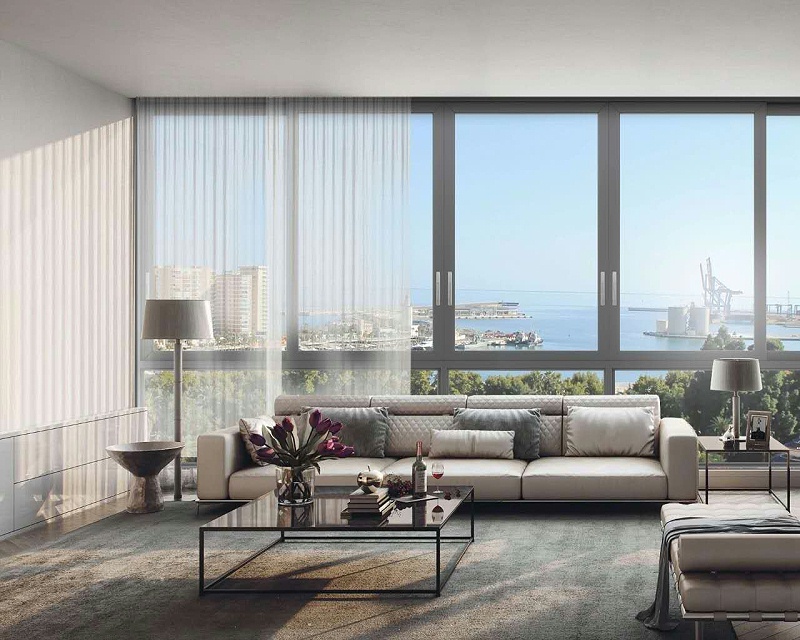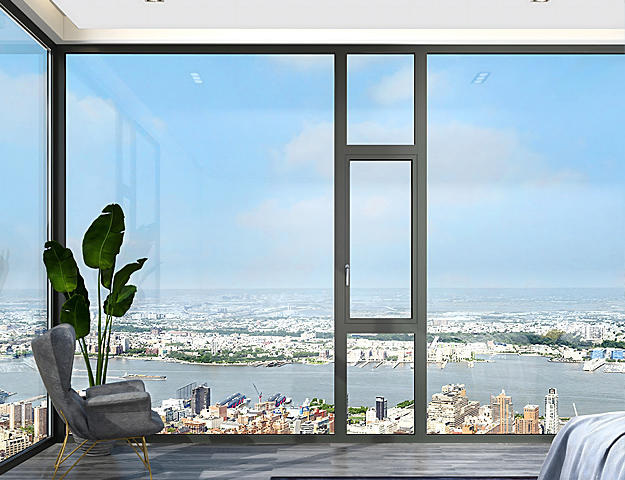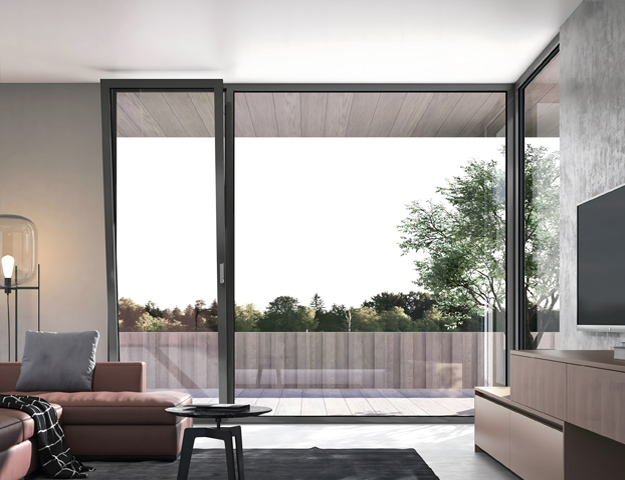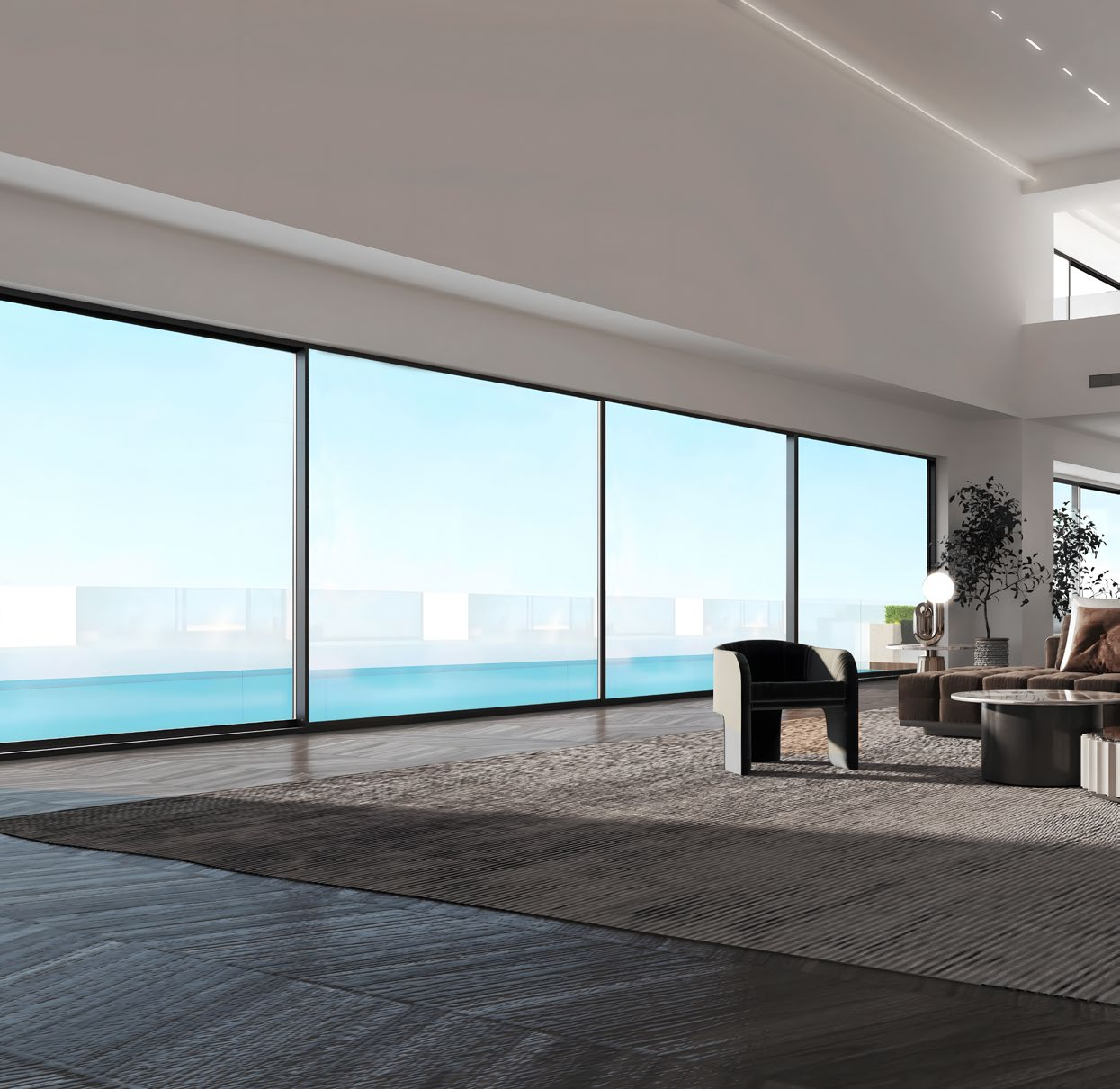Why Do Many Window Experts Recommend Casement Windows Over Sliding Windows for Balconies?

Windows are among the most important materials when it comes to renovating a new home. A house without windows is like a person without a respiratory system—this alone highlights the significance of windows. Selecting the right windows for the balcony requires careful consideration. So, what should we look for when making this choice? Understanding the characteristics of different window types is essential. Below, we compare casement windows and sliding windows as examples.
Ⅰ. Casement Windows
Casement windows are hinged on one side and connected to the frame. They can be designed to open inward or outward, and come in single or double sash varieties. Their features include:
Security: Casement windows are equipped with multiple inconspicuous components around the frame. It is these small parts working together that provide excellent security and anti-burglary performance. When closed, the window is securely fixed on all sides.
Ease of Use: Operating casement windows is very straightforward. They can be opened from inside or outside with ease, and cleaning is equally convenient.
Ventilation: Casement windows allow maximum airflow into the room, ensuring efficient air circulation while effectively keeping rain out.
Insulation and Sealing: The multi-point locking system around the window helps maintain indoor temperatures, creating a comfortable living environment.
Ⅱ. Sliding Windows
Sliding windows can be moved horizontally or vertically, meaning they operate along either a left-right or an up-down direction. Their characteristics include:
Space-Saving: Since sliding windows open within a single plane, they do not take up additional indoor or outdoor space. They also make hanging curtains particularly easy.
Simple Structure: Sliding windows are relatively simple to manufacture. They do not require specialized equipment, making them suitable for production in small workshops with basic tools.
Partial Opening: Due to their design, sliding windows can only open up to 50% of the total window area, which may restrict airflow.

Ⅲ. Comparison Between Casement and Sliding Windows
Appearance
The main difference in appearance between casement and sliding windows lies in how they complement the overall architectural style. Casement windows offer greater flexibility in terms of segmentation, allowing for various linear elevation effects. In large floor-to-ceiling windows, the operable section occupies only a small part of the whole window. This makes them ideal for high-end residential projects where architectural coherence is prioritized—especially for designs that emphasize large segments, ample natural light, transparency, and a streamlined exterior.
On the other hand, sliding windows open only horizontally, making it challenging to integrate them with large fixed glass panels. They are more suitable for industrial buildings or rural homes with distinct horizontal and vertical lines.
Performance
When it comes to the three key performance aspects of windows—wind resistance, water tightness, and air tightness—casement windows generally outperform sliding windows.
The wind resistance of a window depends on the moment of resistance of its main load-bearing components. While larger profiles usually offer greater resistance, this is not always proportional. Casement windows often have smaller profile sections, but their main load-bearing elements, such as reinforced vertical or horizontal members, are specially strengthened during design, resulting in better wind resistance.
Although sliding windows typically use larger profiles, their main load-bearing component is often the movable sash. The top and bottom rails rely solely on rollers to withstand wind pressure, which generally results in poorer wind resistance.
Water tightness is determined by the sealing at the opening sections. Casement windows usually use rubber seals, while sliding windows rely on brush seals. Rubber seals provide significantly better performance.
In terms of air tightness, casement windows commonly use two-point or multi-point locking systems, ensuring a tight seal. Sliding windows, however, usually use hook or latch locks, which are less effective.
Therefore, casement windows outperform sliding windows in all three performance areas. This is why they are often chosen for high-end commercial and residential buildings.

Insulation
Regarding thermal insulation, casement windows generally use rubber sealing strips, while sliding windows use brush seals. Once again, rubber seals are more effective. The locking mechanisms in casement windows also contribute to better sealing. Sliding windows, with their simpler locking systems, do not provide the same level of insulation.
Price
There is not a significant price difference between casement and sliding windows of the same grade, though casement windows are slightly more expensive. Standard aluminum casement windows typically range from $40 to $60 per square meter, mid-range units cost between $70 and $110 per square meter, and high-end versions can exceed $125 per square meter. Standard sliding windows usually range from $30 to $40 per square meter, mid-range models cost between $60 and $100 per square meter, and premium sliding windows can be priced at $110 or higher per square meter.
Manufacturing Process
Sliding windows have a relatively simple structure and do not require specialized manufacturing equipment. This makes them suitable for production in small workshops with basic cutting tools. Casement windows, however, require thicker aluminum corner connectors and 45-degree precision cuts. Producing high-quality aluminum casement windows demands more advanced equipment, such as corner crimping machines and dual-head cutting saws.
In summary, casement windows outperform sliding windows in most aspects. It is likely that they will see broader adoption in the future and become a leading trend in window design.
Based on the above analysis, which type of window is better suited for balconies?
First, balconies require sufficient ventilation—allowing fresh air into the room in the morning. Second, if the balcony is attached to a bedroom, effective sealing is necessary to retain warmth during winter. Finally, during the rainy season, protection against moisture is essential. Considering all these factors, casement windows are an excellent choice. What type of windows have you installed in your home?

Contact State Crown
Explore the State Crown products
CASEMENT WINDOW
US CASEMENT HANDY WINDOW GB-90
Specifically designed for the North American market, our US Casement Handy Windows combine rugged durability with user-friendly operation. Featuring heavy-duty extruded aluminum frames (meeting AA...
CASEMENT WINDOW
CASEMENT WINDOW GB-K80
State Crown’s casement windows redefine ventilation efficiency with their outward-opening design that captures cross-breezes effectively. Constructed with thermally broken aluminum profiles ...
SLIDING DOOR
PANORAMIC SLIDING DOOR GB-160
The GB-160 Panoramic Sliding Door system combines elegant design with rugged functionality. Engineered for wide openings and breathtaking views, this system features a thermal break construction f...
Contact State Crown
Custom Solutions for Global Projects
Established in 2005, we specialize in the customization of premium aluminum alloy doors and windows. With over ten years of industry experience, we are committed to the product philosophy of "Safety, Practicality, and Advanced Technology".
- ISO9001 Quality Management System
- EU CE certification
- IPMS (Intellectual Property Management System)
- Australian, American, and Canadian standards
We are located in Foshan, Guangdong, just under one hour's drive from Guangzhou Baiyun International Airport, in the heart of the Pearl River Delta Economic Zone.
If you are interested in any of our products, or would like to discuss a custom order, please feel free to contact us. We look forward to building long-term business relationships with clients around the world.


